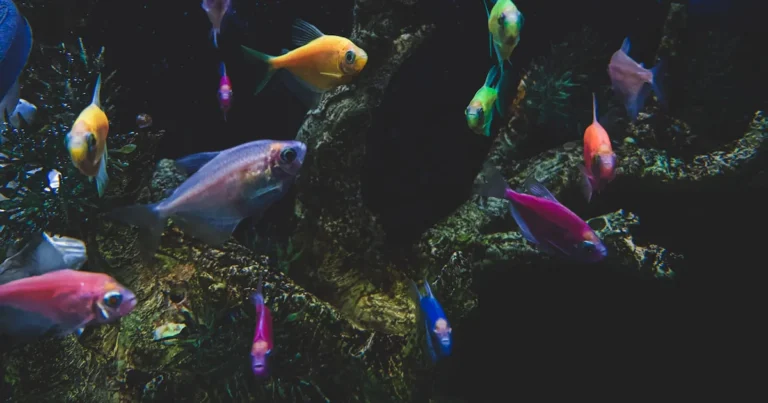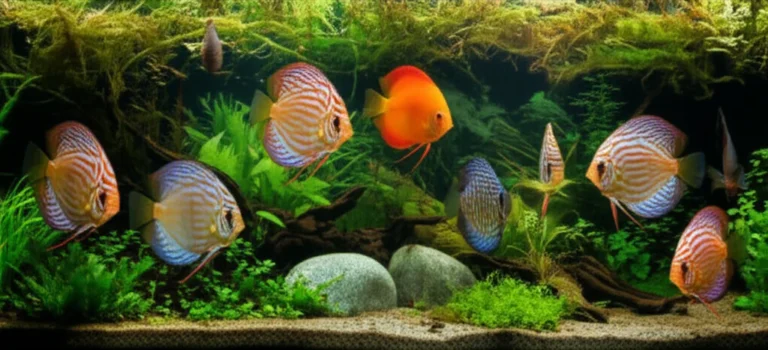Support our educational content for free when you purchase through links on our site. Learn more
20 Essential Fish Disease and Treatment Tips You Can’t Miss 🐠 (2025)
Have you ever stared at your aquarium, puzzled by mysterious white spots or sluggish swimming, wondering if your finned friends are silently suffering? You’re not alone! Fish disease can strike even the most carefully maintained tanks, but the good news is that with the right knowledge and tools, you can turn your aquarium back into a thriving underwater paradise.
At Aquarium Music™, we’ve orchestrated a comprehensive guide that dives deep into 20 essential tips for diagnosing, treating, and preventing fish diseases. From setting up quarantine tanks to choosing the best medications like API Super Ich Cure and Seachem Kanamycin, we cover everything you need to become your fish’s health advocate. Plus, we reveal expert secrets on how water quality and stress management play starring roles in disease prevention. Curious about natural remedies or how to spot early warning signs? Stick around — we’ve got you covered!
Key Takeaways
- Early diagnosis and quarantine are your first defense against fish diseases.
- Common diseases like Ich, fin rot, and velvet require specific treatments—knowing which medication to use is crucial.
- Maintaining excellent water quality and stable parameters prevents most illnesses.
- Stress management is often overlooked but vital for fish immunity.
- Natural remedies can complement but never fully replace proven medications.
- Regular monitoring and tank maintenance keep your aquatic ecosystem healthy and vibrant.
Ready to dive into the symphony of fish health? Let’s get started!
Table of Contents
- ⚡️ Quick Tips and Facts About Fish Disease and Treatment
- 🐟 Understanding Fish Health: The Basics of Fish Disease and Treatment
- 🦠 Common Fish Diseases: Symptoms, Causes, and Diagnosis
- 🔍 Diagnosing Fish Illness: How to Identify and Confirm Diseases
- 🛑 Step 1: Setting Up a Quarantine Tank for Sick Fish
- 🩺 Step 2: Identifying What’s Wrong – Tools and Techniques
- 💊 Step 3: Effective Treatment Strategies for Fish Diseases
- 🛠️ Preventing Fish Diseases: Proactive Care and Maintenance
- 📋 Monitoring and Maintaining Fish Health: Daily and Weekly Routines
- 💡 Take an Active Role: How to Be Your Fish’s Health Advocate
- 🛒 Featured Products for Fish Disease Treatment and Prevention
- 🎯 Expert Tips: Avoiding Common Mistakes in Fish Disease Management
- 📚 Recommended Links for Further Reading and Resources
- ❓ Frequently Asked Questions (FAQ) About Fish Disease and Treatment
- 🔗 Reference Links and Scientific Sources
- 🏁 Conclusion: Keeping Your Fish Happy and Healthy
Quick Tips and Facts About Fish Disease and Treatment
To get started with treating fish diseases, it’s essential to understand the basics. As aquarists and aquascapers at Aquarium Music, we recommend checking out our article on fish tank care for a comprehensive guide. Here are some quick tips and facts:
- Regular Water Changes: Regular water changes are crucial for maintaining good water quality and preventing the spread of disease.
- Quarantine New Fish: Always quarantine new fish before introducing them to your main tank to prevent the spread of disease.
- Monitor Water Parameters: Regularly monitor water parameters such as pH, ammonia, and nitrite levels to ensure they are within safe ranges for your fish.
- Provide a Balanced Diet: Provide a balanced and varied diet to keep your fish healthy and strong.
- Avoid Overcrowding: Avoid overcrowding your tank, as this can lead to stress and disease in your fish.
For more information on fish care and species profiles, visit our Fish Care and Species Profiles section.
Understanding Fish Health: The Basics of Fish Disease and Treatment
Fish health is a complex topic, and understanding the basics of fish disease and treatment is essential for any aquarium owner. According to Tetra, Tetra LifeGuard is a broad-spectrum, non-antibiotic treatment for freshwater fish diseases.
Here are some key points to consider:
- Identify the Disease: The first step in treating a fish disease is to identify the disease. This can be done by observing the symptoms and consulting with a veterinarian or aquarium expert.
- Choose the Right Treatment: Once the disease has been identified, the next step is to choose the right treatment. This may involve using medications, changing water parameters, or providing a specialized diet.
- Follow Treatment Instructions: It’s essential to follow the treatment instructions carefully to ensure the disease is effectively treated and to prevent any harm to the fish.
For more information on tank maintenance, visit our Tank Maintenance section.
Common Fish Diseases: Symptoms, Causes, and Diagnosis
There are many common fish diseases that can affect your fish, and it’s essential to be aware of the symptoms, causes, and diagnosis. Here are some of the most common fish diseases:
1. Ichthyophthirius (Ich) – White Spot Disease
Ich is a common fish disease caused by the parasite Ichthyophthirius multifiliis. It is characterized by the appearance of white spots on the fish’s body and can be treated with medications such as API Super Ich Cure.
2. Fin Rot and Tail Rot: Bacterial Infections Explained
Fin rot and tail rot are bacterial infections that can cause the fins and tail of your fish to rot. They can be treated with antibiotics such as Seachem Kanamycin.
3. Velvet Disease (Oodinium): Identification and Impact
Velvet disease is a parasitic infection caused by the parasite Oodinium. It is characterized by a yellow or brown dust-like coating on the fish’s body and can be treated with medications such as API Velvet Cure.
4. Swim Bladder Disorder: Causes and Treatments
Swim bladder disorder is a condition that affects the swim bladder of your fish, causing them to have difficulty swimming. It can be caused by a variety of factors, including diet, water quality, and genetics.
5. Fungal Infections: Spotting and Fighting Fungus
Fungal infections are caused by fungi such as Saprolegnia and can be treated with medications such as API Fungus Cure.
6. Parasitic Worms and External Parasites
Parasitic worms and external parasites such as anchor worms and fish lice can be treated with medications such as Hikari PraziPro.
For more information on aquarium setup, visit our Aquarium Setup section.
Diagnosing Fish Illness: How to Identify and Confirm Diseases
Diagnosing fish illness can be challenging, but there are several steps you can take to identify and confirm diseases. Here are some tips:
- Observe Your Fish: Observe your fish closely for any signs of illness, such as changes in behavior, appetite, or appearance.
- Check Water Parameters: Check your water parameters regularly to ensure they are within safe ranges for your fish.
- Consult a Veterinarian: If you suspect your fish is ill, consult a veterinarian or aquarium expert for advice.
For more information on aquascaping and aquatic plants, visit our Aquascaping and Aquatic Plants section.
Step 1: Setting Up a Quarantine Tank for Sick Fish
Setting up a quarantine tank is an essential step in treating sick fish. Here are some tips for setting up a quarantine tank:
- Choose the Right Tank: Choose a tank that is large enough to hold your sick fish and provide them with plenty of space to swim.
- Cycle the Tank: Cycle the tank before introducing your sick fish to ensure the water is safe for them.
- Add a Heater and Filter: Add a heater and filter to the tank to maintain a stable water temperature and provide good water quality.
For more information on aquarium equipment, visit our Aquarium Equipment section.
Step 2: Identifying What’s Wrong – Tools and Techniques
Identifying what’s wrong with your fish can be challenging, but there are several tools and techniques you can use to help diagnose the problem. Here are some tips:
- Use a Magnifying Glass: Use a magnifying glass to examine your fish closely for any signs of illness or injury.
- Check for Parasites: Check your fish for parasites such as ich, velvet, or anchor worms.
- Consult a Veterinarian: If you’re unsure what’s wrong with your fish, consult a veterinarian or aquarium expert for advice.
Step 3: Effective Treatment Strategies for Fish Diseases
Effective treatment strategies for fish diseases depend on the type of disease and the severity of the infection. Here are some general tips:
- Use Medications: Use medications such as antibiotics or anti-parasitic medications to treat bacterial or parasitic infections.
- Change Water Parameters: Change water parameters such as pH, ammonia, or nitrite levels to treat diseases caused by poor water quality.
- Provide a Specialized Diet: Provide a specialized diet to treat diseases caused by nutritional deficiencies.
Medications and Antibiotics: What Works Best?
Medications and antibiotics can be effective in treating fish diseases, but it’s essential to choose the right medication and follow the instructions carefully. Here are some tips:
- Choose the Right Medication: Choose a medication that is specifically designed to treat the disease affecting your fish.
- Follow the Instructions: Follow the instructions carefully to ensure the medication is used effectively and safely.
Natural and Home Remedies: When to Use Them
Natural and home remedies can be effective in treating fish diseases, but they should be used with caution and under the guidance of a veterinarian or aquarium expert. Here are some tips:
- Use Natural Remedies with Caution: Use natural remedies such as garlic or ginger with caution and under the guidance of a veterinarian or aquarium expert.
- Avoid Using Home Remedies: Avoid using home remedies such as vinegar or bleach, as they can be harmful to your fish.
Water Quality Management and Its Role in Treatment
Water quality management plays a critical role in treating fish diseases. Here are some tips:
- Regular Water Changes: Regular water changes can help to remove toxins and maintain good water quality.
- Monitor Water Parameters: Monitor water parameters such as pH, ammonia, and nitrite levels to ensure they are within safe ranges for your fish.
Preventing Fish Diseases: Proactive Care and Maintenance
Preventing fish diseases is essential for maintaining a healthy and thriving aquarium. Here are some tips for proactive care and maintenance:
- Regular Water Changes: Regular water changes can help to remove toxins and maintain good water quality.
- Monitor Water Parameters: Monitor water parameters such as pH, ammonia, and nitrite levels to ensure they are within safe ranges for your fish.
- Provide a Balanced Diet: Provide a balanced and varied diet to keep your fish healthy and strong.
Monitoring and Maintaining Fish Health: Daily and Weekly Routines
Monitoring and maintaining fish health is an ongoing process that requires daily and weekly routines. Here are some tips:
- Daily Observations: Observe your fish daily for any signs of illness or stress.
- Weekly Water Changes: Perform weekly water changes to maintain good water quality.
- Regular Tank Maintenance: Regularly clean the tank and equipment to prevent the buildup of toxins and debris.
Take an Active Role: How to Be Your Fish’s Health Advocate
As a fish owner, it’s essential to take an active role in maintaining your fish’s health. Here are some tips:
- Stay Informed: Stay informed about fish health and disease prevention by reading books, articles, and online forums.
- Consult a Veterinarian: Consult a veterinarian or aquarium expert if you have any concerns about your fish’s health.
- Join a Fish Community: Join a fish community or online forum to connect with other fish owners and learn from their experiences.
Featured Products for Fish Disease Treatment and Prevention
There are many products available for fish disease treatment and prevention. Here are some featured products:
- API Super Ich Cure: A medication designed to treat ich and other parasitic infections.
- 👉 CHECK PRICE on: Amazon | Petco | API Official Website
- Seachem Kanamycin: An antibiotic designed to treat bacterial infections.
- 👉 CHECK PRICE on: Amazon | Petco | Seachem Official Website
- Hikari PraziPro: A medication designed to treat parasitic worms and external parasites.
- 👉 CHECK PRICE on: Amazon | Petco | Hikari Official Website
Expert Tips: Avoiding Common Mistakes in Fish Disease Management
Avoiding common mistakes in fish disease management is essential for maintaining a healthy and thriving aquarium. Here are some expert tips:
- Don’t Overcrowd: Avoid overcrowding your tank, as this can lead to stress and disease in your fish.
- Don’t Overfeed: Avoid overfeeding your fish, as this can lead to poor water quality and disease.
- Don’t Ignore Water Parameters: Don’t ignore water parameters such as pH, ammonia, and nitrite levels, as these can have a significant impact on your fish’s health.
For more information on fish care and species profiles, visit our Fish Care and Species Profiles section.
Conclusion: Keeping Your Fish Happy and Healthy

Navigating the world of fish disease and treatment can feel like conducting a complex symphony—but with the right knowledge and tools, you can keep your aquatic orchestra playing beautifully! From our deep dive at Aquarium Music™, quarantining new fish remains the gold standard for preventing disease outbreaks. Early diagnosis, targeted treatment, and maintaining pristine water quality are your best allies.
While medications like API Super Ich Cure, Seachem Kanamycin, and Hikari PraziPro offer powerful, targeted solutions, remember that no single product is a magic bullet. Each has its strengths and limitations—API Super Ich Cure excels against parasitic ich but won’t help bacterial infections, whereas Kanamycin tackles bacteria but does nothing for parasites. Combining knowledge with proper tank management is the key.
Natural remedies can complement treatments but should never replace scientifically backed medications without expert guidance. And don’t underestimate the power of stress management—it’s often the hidden villain behind many diseases.
So, are you ready to become your fish’s health advocate? With vigilance, patience, and the right resources, you’ll keep your finned friends thriving and your aquarium a vibrant underwater concert. 🎶🐠
Recommended Links
-
API Super Ich Cure:
Amazon | Petco | API Official Website -
Seachem Kanamycin:
Amazon | Petco | Seachem Official Website -
Hikari PraziPro:
Amazon | Petco | Hikari Official Website -
Recommended Books:
Frequently Asked Questions (FAQ) About Fish Disease and Treatment

What are the most common diseases affecting freshwater fish?
The most common diseases include Ichthyophthirius (Ich), fin rot, velvet disease (Oodinium), fungal infections, and swim bladder disorders. These diseases often manifest as white spots, ragged fins, dusty coatings, fuzzy growths, or abnormal swimming behavior. Early detection and treatment are critical to prevent outbreaks.
Read more about “Ultimate Aquatic Pet Care Guides: 12 Expert Tips for 2025 🐠”
How can I prevent fish diseases in my aquarium?
Prevention hinges on quarantine protocols, maintaining excellent water quality, avoiding overcrowding, and providing balanced nutrition. Quarantining new fish for at least two weeks helps catch latent infections before they spread. Regular water testing and changes keep the environment stable and inhospitable to pathogens.
Read more about “45 Spectacular Community Fish Tanks to Transform Your Aquarium in 2025 🐠”
What are natural treatments for fish infections?
Natural treatments such as garlic supplements, salt baths, and herbal extracts (e.g., Indian almond leaves) can boost fish immunity and help mild infections. However, these should be used cautiously and never replace proven medications for serious diseases. Always consult experts before trying natural remedies.
How do I identify symptoms of fish diseases early?
Look for changes in behavior (lethargy, hiding, erratic swimming), appearance (spots, discoloration, frayed fins), and appetite (refusal to eat). Using a magnifying glass or microscope can help spot parasites or fungal growths early. Regular observation is your first line of defense.
Read more about “16 Essential Aquarium Troubleshooting Tips You Can’t Miss in 2025 🐠”
Can stress cause diseases in aquarium fish?
✅ Absolutely! Stress weakens fish immune systems, making them more susceptible to infections. Stressors include poor water quality, sudden temperature changes, overcrowding, aggressive tank mates, and improper handling. Minimizing stress is as important as treating diseases.
Read more about “The Ultimate Discus Fish Care Guide: 15 Expert Secrets for 2025 🐠”
What medications are safe for treating fish diseases?
Medications like API Super Ich Cure, Seachem Kanamycin, and Hikari PraziPro are widely regarded as safe and effective when used according to instructions. Avoid mixing different brands or overdosing, as this can harm fish and beneficial bacteria. Always remove activated carbon from filters during treatment to avoid medication absorption.
Read more about “10 Saltwater Fish Diseases You Must Know to Save Your Tank 🐠 (2025)”
How does water quality impact fish health and disease prevention?
Water quality is the foundation of fish health. Parameters such as ammonia, nitrite, nitrate, pH, and temperature must be kept within species-specific ranges. Poor water quality stresses fish and fosters pathogen growth. Regular testing and maintenance prevent many diseases before they start.
How often should I test my aquarium water?
Test water at least once a week, or more frequently if you notice signs of stress or disease. Use reliable test kits like those from API or Seachem for accurate readings.
Can beneficial bacteria survive medication treatments?
Some medications can harm beneficial bacteria, especially antibiotics and anti-parasitics. To mitigate this, remove chemical filtration and consider using bacterial supplements like Seachem Stability after treatment to restore biofilter health.
Reference Links and Scientific Sources
- Aquarium Co-Op: How to Treat Sick Aquarium Fish
- Tetra Fish: Fish Illnesses – How to Spot Them
- FAO: Fish Disease Prevention and Treatment
- API Fish Care Products
- Seachem Official Website
- Hikari USA Official Website
These sources provide authoritative, science-backed information to help you confidently manage fish health and disease treatment.







